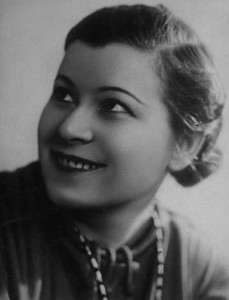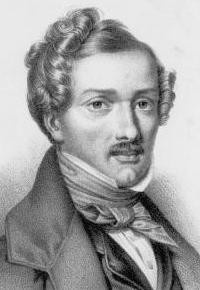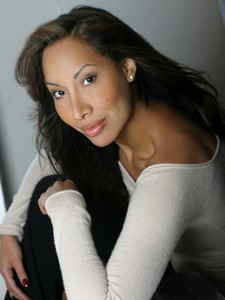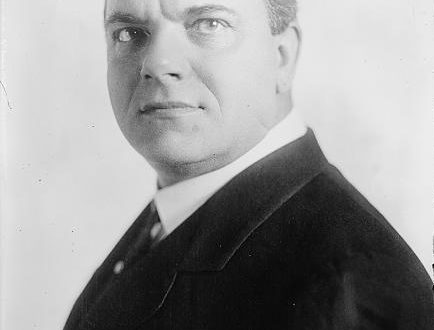
Maria Petrovna Maksakova |
Maria Maksakova

Maria Petrovna Maksakova was born on April 8, 1902 in Astrakhan. The father died early, and the mother, burdened by the family, could not pay much attention to the children. At the age of eight, the girl went to school. But she did not study too well because of her peculiar character: she closed herself in herself, became unsociable, then carried away her friends with violent pranks.
At the age of ten she began to sing in the church choir. And here Marusya seemed to have been replaced. The impressionable girl, captured by work in the choir, finally calmed down.
“I learned to read music by myself,” the singer recalled. – For this, I wrote a scale on the wall at home and crammed it all day long. Two months later, I was considered a connoisseur of music, and after a while I already had the “name” of a chorister who freely read from a sheet.
Just a year later, Marusya became the leader in the viola group of the choir, where she worked until 1917. It was here that the best qualities of the singer began to develop – impeccable intonation and smooth sound leading.
After the October Revolution, when education became free, Maksakova entered the music school, piano class. Since she did not have an instrument at home, she studies at the school every day until late in the evening. For an aspiring artist, some kind of obsession is characteristic at that time. She revels in listening to scales, usually the “hate” of all students.
“I loved music very much,” writes Maksakova. – Sometimes, I would hear, walking down the street, how someone was playing scales, I would stop under the window and listen for hours until they sent me away.
In 1917 and early 1918, all those who worked in the church choir were united into one secular choir and enrolled in the Rabis Union. So I worked for four months. Then the choir broke up, and then I started learning to sing.
My voice was very low, almost contralto. At the music school, I was considered a capable student, and they began to send me to concerts arranged for the Red Guard and the Navy. I was successful and very proud of it. A year later, I began to study first with the teacher Borodina, and then with the artist of the Astrakhan Opera – the dramatic soprano Smolenskaya, a student of I.V. Tartakov. Smolenskaya began to teach me how to be a soprano. I liked it very much. I studied for no more than a year, and since they decided to send the Astrakhan Opera to Tsaritsyn (now Volgograd) for the summer, in order to be able to continue studying with my teacher, I decided to also enter the opera.
I went to the opera with fear. Seeing me in a short student dress and with a scythe, the director decided that I had come to enter the children’s choir. I stated, however, that I wanted to be a soloist. I was auditioned, accepted and instructed to learn the part of Olga from the opera Eugene Onegin. Two months later they gave me Olga to sing. I had never heard opera performances before and had a poor idea of my performance. For some reason, I was not afraid for my singing then. The director showed me the places where I should sit down and where I should go. I was naive then to the point of stupidity. And when someone from the choir reproached me that, not yet able to walk around the stage, I was already receiving my first salary, I understood this phrase literally. To learn how to “walk on the stage”, I made a hole in the back curtain and, kneeling, watched the whole performance only at the feet of the actors, trying to remember how they walk. I was very surprised to find that they walk normally, as in life. In the morning I came to the theater and walked around the stage with my eyes closed, in order to discover the secret of “the ability to walk around the stage”. It was in the summer of 1919. In autumn, a new troupe manager M.K. Maksakov, as they said, is the storm of all incapable actors. My joy was great when Maksakov entrusted me with the role of Siebel in Faust, Madeleine in Rigoletto and others. Maksakov often said that I have stage talent and a voice, but I don’t know how to sing at all. I was perplexed: “How can this be, if I already sing on stage and even carry the repertoire.” However, these conversations disturbed me. I began to ask M.K. Maksakova to work with me. He was in the troupe and a singer, and a director, and a theater manager, and he didn’t have time for me. Then I decided to go to study in Petrograd.
I went straight from the station to the conservatory, but I was refused admission on the grounds that I did not have a high school diploma. To admit that I am already an opera actress, I was afraid. Completely upset by the rejection, I went outside and wept bitterly. For the first time in my life I was attacked by real fear: alone in a strange city, without money, without acquaintances. Fortunately, I met one of the choir artists in Astrakhan on the street. He helped me temporarily settle in a familiar family. Two days later, Glazunov himself auditioned for me at the conservatory. He referred me to a professor, from whom I was supposed to start learning to sing. The professor said that I have a lyric soprano. Then I decided to immediately return to Astrakhan to study with Maksakov, who found a mezzo-soprano with me. Returning to my homeland, I soon married M.K. Maksakov, who became my teacher.
Thanks to her good vocal abilities, Maksakova managed to enter the opera house. “She had a voice of a professional range and sufficient sonority,” writes M.L. Lvov. — Impeccable were the accuracy of intonation and sense of rhythm. The main thing that attracted the young singer in singing was musical and speech expressiveness and an active attitude to the content of the performed work. Of course, all this was still in its infancy, but it was quite enough for an experienced stage figure to feel the possibilities of development.
In 1923, the singer first appeared on the stage of the Bolshoi in the role of Amneris and was immediately accepted into the theater troupe. Working surrounded by such masters as conductor Suk and director Lossky, soloists Nezhdanova, Sobinov, Obukhova, Stepanova, Katulskaya, the young artist quickly realized that no talent would help without the utmost exertion of strength: “Thanks to the art of Nezhdanova and Lohengrin – Sobinov, I first understood that the image of a great master reaches the limit of expressiveness only when great inner agitation manifests itself in a simple and clear form, when the richness of the spiritual world is combined with the stinginess of movements. Listening to these singers, I began to understand the purpose and meaning of my future work. I already realized that talent and voice are only the material with the help of which only through tireless work can each singer earn the right to sing on the stage of the Bolshoi Theater. Communication with Antonina Vasilievna Nezhdanova, who from the first days of my stay at the Bolshoi Theater became the greatest authority for me, taught me rigor and exactingness in my art.
In 1925 Maksakova was seconded to Leningrad. There, her operatic repertoire was replenished with the parts of Orpheus, Martha (Khovanshchina) and comrade Dasha in the opera For Red Petrograd by Gladkovsky and Prussak. Two years later, in 1927, Maria returned to Moscow, to the State Academic Bolshoi Theater, remaining until 1953 the leading soloist of the country’s first troupe.
It is impossible to name such a mezzo-soprano part in operas that were staged at the Bolshoi Theater in which Maksakova would not shine. Unforgettable for thousands of people were her Carmen, Lyubasha, Marina Mnishek, Marfa, Hanna, Spring, Lel in the operas of Russian classics, her Delilah, Azuchena, Ortrud, Charlotte in Werther, and finally Orpheus in Gluck’s opera staged with her participation by the State Ensemble operas under the direction of I.S. Kozlovsky. She was the magnificent Clarice in Prokofiev’s The Love for Three Oranges, the first Almast in Spendiarov’s opera of the same name, Aksinya in Dzerzhinsky’s The Quiet Don and Grunya in Chishko’s Battleship Potemkin. Such was the range of this artist. It is worth saying that the singer, both in the years of her stage heyday, and later, leaving the theater, gave a lot of concerts. Among her highest achievements can rightfully be attributed the interpretation of romances by Tchaikovsky and Schumann, works by Soviet composers and folk songs.
Maksakova is among those Soviet artists who had a chance to represent our musical art abroad for the first time in the 30s, and she is a worthy plenipotentiary in Turkey, Poland, Sweden, and in the post-war years in other countries.
However, not everything is so rosy in the life of the great singer. Says daughter Lyudmila, also a singer, Honored Artist of Russia:
“My mother’s husband (he was the ambassador to Poland) was taken away at night and taken away. She never saw him again. And so it was with many…
… After they imprisoned and shot her husband, she lived under the sword of Damocles, because it was Stalin’s court theater. How could a singer with such a biography be in it. They wanted to send her and the ballerina Marina Semenova into exile. But then the war began, my mother left for Astrakhan, and the matter seemed to be forgotten. But when she returned to Moscow, it turned out that nothing had been forgotten: Golovanov was removed in one minute when he tried to protect her. But he was a powerful figure – the chief conductor of the Bolshoi Theater, the greatest musician, the winner of the Stalin Prizes … “
But in the end everything worked out. In 1944, Maksakova received the first prize at a competition organized by the Committee for the Arts of the USSR for the best performance of a Russian song. In 1946, Maria Petrovna received the USSR State Prize for outstanding achievements in the field of opera and concert performance. She received it twice more – in 1949 and 1951.
Maksakova is a great hard worker who has managed to multiply and elevate her natural talent through tireless work. Her stage colleague N.D. Spiller recalls:
“Maksakova became an artist thanks to her great desire to be an artist. This desire, strong as an element, could not be quenched by anything, she was firmly moving towards her goal. When she took on some new role, she never stopped working on it. She worked (yes, she worked!) on her roles in stages. And this always led to the fact that the vocal side, stage design, appearance – in general, everything acquired an absolutely finished technical form, filled with great meaning and emotional content.
What was Maksakova’s artistic strength? Each of her roles was not an approximately sung part: today in the mood – it sounded better, tomorrow not – a little worse. She had everything and always “made” extremely strong. It was the highest level of professionalism. I remember how once, at the performance of Carmen, in front of the stage in the tavern, Maria Petrovna, behind the scenes, lifted the hem of her skirt several times in front of the mirror and followed the movement of her leg. She was preparing for the stage where she had to dance. But thousands of acting techniques, adaptations, carefully thought-out vocal phrases, where everything was clear and understandable – in general, she had everything in order to most fully and vocally, and stage express the inner state of her heroines, the inner logic of their behavior and actions . Maria Petrovna Maksakova is a great master of vocal art. Her giftedness, her high skill, her attitude to the theatre, her responsibility are worthy of the highest respect.”
And here is what another colleague S.Ya. says about Maksakova. Lemeshev:
“She never fails artistic taste. She is more likely to “understand” a little rather than “squeeze” (and this is what often brings easy success to the performer). And although deep down many of us know that such success is not so expensive, only great artists are able to refuse it. Maksakova’s musical sensitivity is manifested in everything, including her love for concert activity, for chamber literature. It is difficult to determine which side of Maksakova’s creative activity – the opera stage or the concert stage – won her such wide popularity. Among her best creations in the field of chamber performance are romances by Tchaikovsky, Balakirev, Schumann’s cycle “Love and Life of a Woman” and much more.
I remember M.P. Maksakov, performing Russian folk songs: what purity and inescapable generosity of the Russian soul are revealed in her singing, what chastity of feeling and strictness of manner! In Russian songs there are many remote choruses. You can sing them in different ways: both dashingly, and with a challenge, and with the mood that is hidden in the words: “Oh, go to hell!”. And Maksakova found her intonation, drawn out, sometimes perky, but always ennobled by feminine softness.
And here is the opinion of Vera Davydova:
“Maria Petrovna attached great importance to appearance. Not only was she very beautiful and had a great figure. But she always carefully monitored her external form, strictly adhered to a strict diet and stubbornly practiced gymnastics …
… Our dachas near Moscow in Snegiri, on the Istra River, stood nearby, and we spent our holidays together. Therefore, I met with Maria Petrovna every day. I watched her calm home life with her family, saw her love and attention to her mother, sisters, who responded to her in the same way. Maria Petrovna loved to walk for hours along the banks of the Istra and admire the wonderful views, forests and meadows. Sometimes we met and talked with her, but usually we discussed only the simplest issues of life and hardly touched upon our joint work in the theater. Our relations were the most friendly and pure. We respected and valued each other’s work and art.”
Maria Petrovna, towards the end of her life, having left the stage, continued to live a busy life. She taught vocal art at GITIS, where she was an assistant professor, headed the People’s Singing School in Moscow, participated in the jury of many all-Union and international vocal competitions, and was engaged in journalism.
Maksakova died on August 11, 1974 in Moscow.





